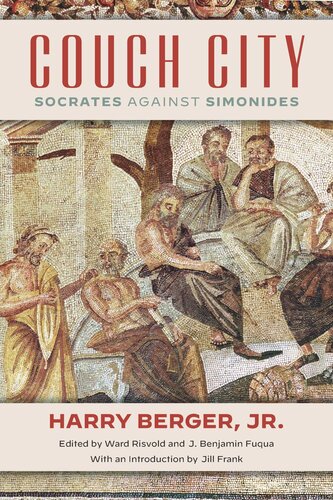

Most ebook files are in PDF format, so you can easily read them using various software such as Foxit Reader or directly on the Google Chrome browser.
Some ebook files are released by publishers in other formats such as .awz, .mobi, .epub, .fb2, etc. You may need to install specific software to read these formats on mobile/PC, such as Calibre.
Please read the tutorial at this link: https://ebookbell.com/faq
We offer FREE conversion to the popular formats you request; however, this may take some time. Therefore, right after payment, please email us, and we will try to provide the service as quickly as possible.
For some exceptional file formats or broken links (if any), please refrain from opening any disputes. Instead, email us first, and we will try to assist within a maximum of 6 hours.
EbookBell Team

0.0
0 reviewsCrowning six decades of literary, rhetorical, and historical scholarship, Harry Berger, Jr., offers readers another trenchant reading. Berger subverts the usual interpretations of Plato’s kalos kagathos, showing Socrates to be trapped in a double ventriloquism, tethered to his interlocutors’ speech acts even as they are tethered to his.
Plato’s Republic and Protagoras both reserve a small but significant place for a poet who differs from Homer and Hesiod: the lyric poet Simonides of Ceos. In the Protagoras, Socrates takes apart a poem attributed to Simonides and uses this to finish off the famous and supposedly dangerous sophist, Protagoras. Couch City is a close reading of the comic procedures Socrates deploys against Protagoras as he reduces him to silence. But it also shows that Socrates takes the danger posed by Protagoras and his fellow sophists seriously. Even if they are represented as buffoons, sophists are among the charismatic authority figures—poets, rhapsodes, seers, orators, and lawgivers—who promote views harmful to Athenian democracy. Socrates uses Simonides’s poem to show how sophists not only practice misinterpretation but are unable to defend against it.
Berger ports his roots as a pioneering literary theorist into this rhetorical discussion, balancing ideas such as speech-act theory with hard-nosed philology. The result is a provocative and counterintuitive reassessment of Plato’s engagement with democracy.
Berger’s trenchant readings are consistently surprising and entertaining.